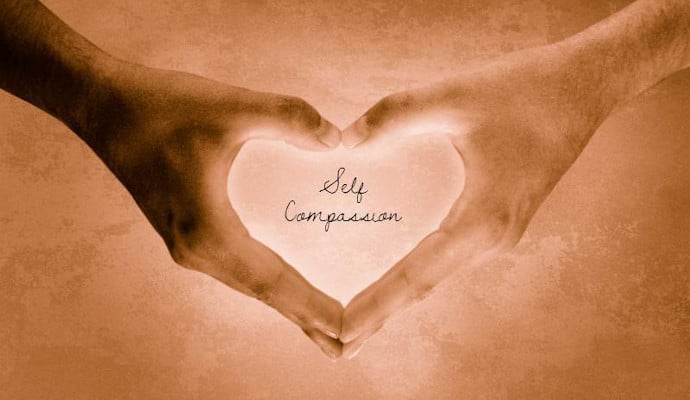
Caregivers are too hard on themselves
How can you be so stupid?
Why didn’t you think that through?
How could you not expect this to happen?
Would you talk this way to a friend? Or even a stranger? Would you let a friend talk to you this way?
Of course not! It’s rude, mean, and completely uncalled for. But how often do you say these negative things to yourself – especially when it comes to your caregiving responsibilities?
We explain why being hard on yourself harms your health, why showing compassion toward yourself is so helpful, and share simple tools that help you add self-compassion to daily life.
Being hard on yourself is bad for your health
When you’re caring for an older adult, the job itself takes a lot out of you. Beating up on yourself only adds to the stress.
The emotional side of caregiving is a big reason for the high rate of caregiver burnout. Yes, the physical tasks and never-ending to do lists are difficult to manage. But the thoughts and feelings you’re dealing with can be equally damaging to your health.
What is self-compassion?
Psychologist Dr. Kristin Neff is a leading expert in the study of self-compassion.
She describes being self-compassionate as extending the same kindness and sympathy toward yourself just as you would to a good friend.
Why self-compassion helps caregivers
Caregiving is a tough job. Nobody can anticipate and handle every situation perfectly. Being compassionate toward yourself helps you manage the negative feelings that come up when life gets stressful.
Dr. Neff’s research found that people who are compassionate to themselves are much less likely to be depressed, anxious, and stressed. They’re much more likely to be happy, resilient, and optimistic about their future.
Less stress and anxiety. More resilience and optimism. Caregivers would benefit from all those things!
How caregivers can become more self-compassionate
Next time you start to get down on yourself when something goes wrong, stop and think “If my friend told me about this situation, what would I say to them?”
You would probably respond kindly, sympathize with their frustrations, remind them of the things they’re doing really well, and suggest how to improve the situation in the future. You wouldn’t tear them down or say mean things.
Try showing the same kindness to yourself, as if you were being your own good friend.
Self-compassion tools for caregivers
1. Three practical exercises
This article includes 3 useful, free exercises from Dr. Neff’s book about self-compassion. Doing these exercises will help you learn to be kind to yourself.
2. Check your current self-compassion level
Wondering how much compassion you are (or aren’t) already showing yourself? Try this quick quiz from Dr. Neff’s website.
Next Step Practice self-compassion with these 3 free exercises
Recommended for you:
- 7 Ways of Dealing with Caregiver Guilt That Improve Health
- Caring for the Caregiver: 6 Ways to Get Help and Improve Your Health
- 6 Ways to Stop Judging Yourself as a Caregiver
By DailyCaring Editorial Team
Image: Sanaya Says
This article wasn’t sponsored, but does contain affiliate links. We never link to products or services for the sole purpose of making a commission. Recommendations are based on our honest opinions. For more information, see How We Make Money.




